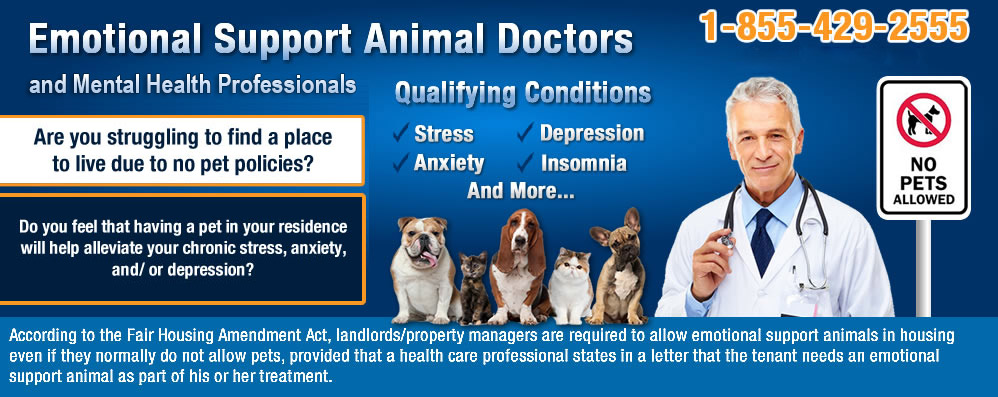
If you are struggling with mental health, you might have realized that dealing with it alone is really hard. Keeping such a heavy problem to yourself can make it worse, the hiding, avoidance of loved ones and the shame that often accompany mental health struggles.
Anxiety, depression, post-traumatic stress, and other mental health conditions are serious and rob the joys of life. They generally don’t just go away on their own. That’s what makes it so important to reach out to get the help that you need.
One option that has been emerging in recent years in treating mental health issues is the use of Emotional Support Animals.
What are Emotional Support Animals?
Emotional Support Animals or ESA are animals that provide support to a person experiencing mental health difficulties. These animals provide companionship, support and encourage a multitude of positive brain chemistry and mood changes.
Many doctors prescribe fluffy helpers to assist their patients as part of a treatment plan. If you or someone in your family could benefit from having an emotional support animal in their life, then you need to have all the important information to get an ESA.
Choosing An ESA
One of the reasons for investing in an emotional support animal is such a great idea that they do not require any specific training. This means, that if you already have a pet, they are automatically eligible to be an ESA. However, if you do not own a pet, then you can adopt, find a pet through a breeder or even rescue a stray and get them registered as an ESA.
However, your ESA will be accompanying you in public places, so you need to have an ESA Letter to avoid the inconvenience such as going in pet restricted areas and even you can fly with your ESA on commercial airlines without paying additional charges.
Here are the requirements you need to fulfill to get an ESA letter.
The Requirements for Obtaining ESA Letter
The ESA letter is an official letter from a licensed mental health practitioner. It states that, as part of the treatment for a recognized emotional or mental disability, you require the presence of an animal for comfort and to alleviate symptoms.
However, to obtain an ESA letter, the person has to make an appointment with the licensed therapist. He/She will then assess if the person suffers from any sort of mental illness and only then provide the letter.
If a person is suffering from any of the below-mentioned mental health problems or emotional disability, then they can qualify for an emotional support animal:
•Depression
•Anxiety Disorder
•Stress
•Post-Traumatic Stress Disorder
•Postpartum Depression
•Panic Attacks
•Fear and Phobias
•Bipolar Disorder
•Obsessive-Compulsive Disorder
There are also certain legal rights for the ESA owner
Accommodation
The ESA letter enables the owner to take the pet with them to places with no pet policy.
Your emotional support animal can live with you in no pet policy housing according to the Fair Housing Act (FHA). This act protects individuals with disabilities from housing discrimination. If the landlord denies providing a house, it will be considered as a violation of federal law and is a punishable offense.
In addition to this, the landlord can also not ask for the pet fee of support animals since the emotional support animals are not considered as pets.
Traveling
The ESA can accompany you in the cabin on a commercial airline flight as allowed by the Air Carrier Access Act (ACAA). However, you need to show a valid ESA letter.
What Needs to be Included in ESA Letter?
The ESA letter must be properly formatted and include:
•The name, addresses, and contact information of a licensed medical professional
•An indication that you are under this professional’s care
•An indication that you have a mental disorder
•An indication that your emotional issues preclude at least one major life activity
•Signature of licensed medical professional
These are the things you need to know about ESA and the ESA letter.
With an ESA letter, you no longer have to compromise where you live and how you travel.













